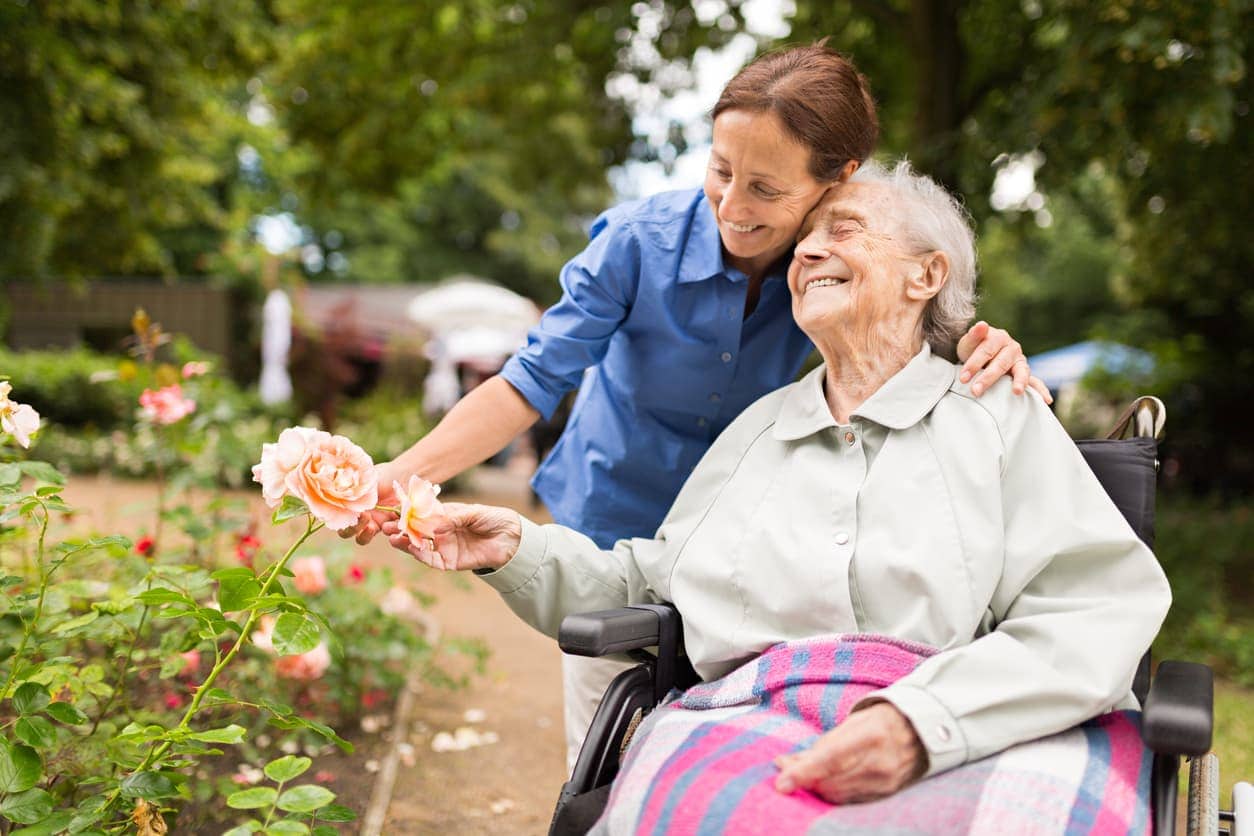
Self-Care for Caregivers: Nurturing Yourself While Caring for Others
Taking care of a loved one with Alzheimer’s or dementia can be time-consuming and emotionally-taxing. For caregivers, prioritizing their own self-care is difficult but is essential for minimizing stress and burnout. Setting healthy habits for your daily routine not only will improve your personal well-being but ultimately impacts your ability to provide care for your loved one. These practical strategies and tips for caregivers will help you balance all your responsibilities.
- Eat Well: Eating fresh, nutritious foods fuels your energy and boosts your mood. However, it can be hard to find the time to shop, plan, and cook nutritious meals everyday. Meal prepping for the entire week is a great way to save time and have nutritious meals readily available whenever you need it. This method is also helpful if you are responsible for making meals for your aging loved one.
- Little Joys: It is important to make time for the activities you enjoy! Whether it’s reading, going to your favorite coffee shop, or spending time with friends, make sure you’re still getting to do the little things you love. These little joys can easily fall to the wayside or feel selfish to prioritize, but they are so good for your mental health. Consider planning activities that both you and your loved one could enjoy together.
- Quality Sleep: With a busy schedule, sometimes even the simplest self-care measures aren’t prioritized. Try to keep a consistent sleep schedule that includes at least 7-8 hours each night. According to the National Institute of Health, your amount of quality sleep affects how you think, react, and get along with others – making it extra important when juggling caregiver responsibilities.
- Movement and Exercise: Daily movement has been proven to relieve stress and promote overall wellness. It doesn’t have to be time-consuming either! Taking walks or doing simple at-home workouts can be great exercise solutions for busy schedules. Start with simple things you can do regularly, such as a quick walk around the block in the evenings.
- Seeking Support: Setting realistic expectations for yourself will help you build a schedule that can actually be maintained. Assess all of your responsibilities, including work, family, and extracurriculars, to see how much of a load you can truly manage. Look into available resources, such as memory care communities or respite care, to support you and your loved one in a way that is sustainable. Respite care is a great opportunity for you to have time for your priorities while your loved one enjoys expert support and engaging activities.
At Avalon Memory Care, we’re dedicated to supporting families and providing exceptional care for our residents. Contact us to schedule a tour and learn more about our approach to memory care. Let us help you create a care plan that prioritizes both your loved one’s needs and your own self-care.
See More Articles
-
Visiting Your Aging Parent With Memory Loss at Avalon Memory Care
As a loving son or daughter, you naturally want the best of care for your senior parent. The compassionate assisted living caregivers at Avalon Memory Care want you to know that while your parent is living with us, he or she will receive nothing less than respectful, loving care within our comfortable, safe, and fully-staffed
-
Celebrating New Year’s Day in Memory Care
Families often find that celebrations with their loved ones in memory care are easier when they embrace new traditions. For instance, it may not be practical to expect your loved one to stay up until midnight on New Year’s Eve. Instead, consider throwing a New Year’s Day celebration, complete with a countdown to the first
-
Understanding Parkinson’s Disease and Dementia
Parkinson’s disease is an incurable neurological disorder, with progressively worsening complications. Perhaps the most well-known symptom of Parkinson’s is a hand tremor, but it can also cause speech changes, muscle rigidity, and impaired posture. Eventually, as the disease progresses, more than half of all individuals with Parkinson’s will require dementia care. This particular type of
Testimonials
Downloadable Resources
We Are Avalon
Discover the heart of our community; download ‘We Are Avalon’ to get to know our dedicated team and our commitment to providing a warm, family-like environment.
Transitional Care Guide
If you’re considering a transition, we’re here to help; download our Transitional Care Guide for compassionate guidance through each step of the process.
Schedule a Tour
Visit one of our 30+ campuses and experience our unique approach to memory care.












